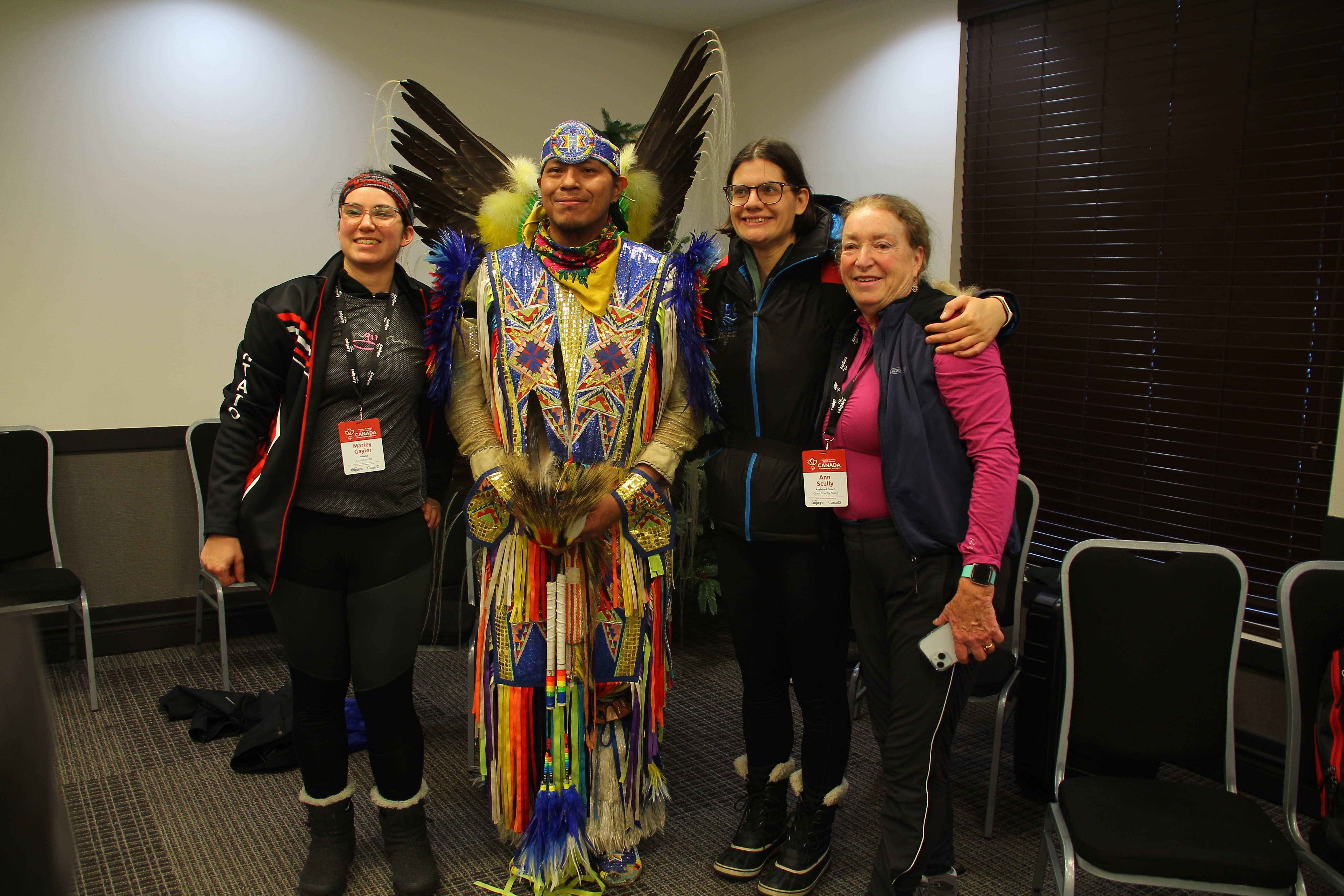Special Olympics Canada's Commitment to Indigenous Inclusion

Empowered by the powerful Indigenous symbolism around the Eagle Feather, Special Olympics Team Canada won 39 gold medals, 35 silvers, and 42 bronze medals at the 2025 Winter World Games.
Brent Dodginghorse—a retired NHL player and current youth advocate—was invited to Special Olympics Team Canada’s training camp, to help prepare its athletes and coaches for the Turin Winter Games, held during March 2025. Brent, alongside other Indigenous leaders such as Greg Henhawk and Edith Picard, spent the weekend getting to know hundreds of people readying themselves for an exciting—yet high stakes—trip to Turin, Italy.
According to Brianna Cuzzolino—programs manager for Special Olympics Canada —this was part of Special Olympics Canada’s efforts to increase its engagement with Indigenous members of the movement. Having worked alongside youth workers in Indigenous communities in her career prior to joining Special Olympics, Cuzzolino hopes that this work will promote more opportunities for members of First Nation, Metis, and Inuit Peoples to get involved with the organization. That being said, all three of these mentors for Team Canada brought an incredible amount of relevant experience.
First is Dodginghorse himself, who is not only a former left wing scorer representing multiple NHL teams including the Hitmen from his hometown of Calgary, Alberta, but he is also a ranch owner and two-time steer wrestling world champion.
Greg Henhawk has over three decades of teaching secondary school, on top of having coached no less than 20 Senior Varsity teams in basketball. Across the various teams he coached, Henhawk has 12 gold medals.
Last but not least, is Edith Picard, a Wendake Elder, Indigenous Knowledge Keeper, and retired Nurse. She is also fluent in French, giving her natural access to Special Olympics Team Canada’s francophone athletes and coaches.
 In order to make sure his advice reached as many as possible, Dodginghorse held a session with each separate specific-sport team, such as the alpine skiing team, the figure skating team, the speed skating team, and so forth. The goal was to allow for meaningful engagement between everyone that was involved.
In order to make sure his advice reached as many as possible, Dodginghorse held a session with each separate specific-sport team, such as the alpine skiing team, the figure skating team, the speed skating team, and so forth. The goal was to allow for meaningful engagement between everyone that was involved.
One of Dodginghorse’s teachings—rooted in an Indigenous metaphor involving the Eagle feather—resonated with a team looking for ways to deal with the anxiety that comes with going to an international tournament.
Special Olympics Team Canada members often came back to that image of the Eagle feather, understanding that negative emotions such as self-doubt can separate a feather’s strands, while self-affirmations and cooperative support helps clean their feathers making them flight-worthy again. Cuzzolino said that Dodginghorse bringing a physical feather for his teaching made a great visual that drove home the core ideas.
“The Eagle feather he used,” she added, “as he shared, it resembles strength, resilience, and bravery. Those things were rooted [in the team] too.”
Cuzzolino said the Special Olympics Team Canada training camp was a big opportunity for meaningful interactions between athletes, coaches, and Indigenous leaders.
However, there is still a long way to go, and it is a journey that Cuzzolino is helping her coworkers at the national office make.
“This year we’ve really been focused on education and learning at the national level,” she explained, “of staff and board members. Also our chapter leaders and councils.”
Currently, Cuzzolino is looking for gaps in resource management and people’s understanding of Indigenous Canadian issues, so she can develop a system to fill those gaps. She believes the best way to make progress in this field is to first build a strong foundation. In particular, the Aboriginal Sport Circle has been providing Special Olympics Canada with helpful resources around physical literacy and development, as well as giving advice on how to better support Indigenous athletes and volunteers.
